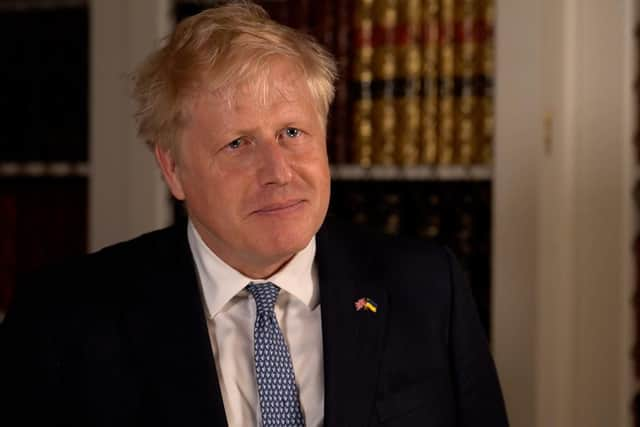Johnson’s hollow vote of confidence is not the end - Scotsman comment
Mr Johnson managed a performance worse than that of Margaret Thatcher in 1990. She saw off a challenge from Michael Heseltine, but quickly realised she had lost the confidence of her cabinet and resigned.
He also managed a smaller percentage of votes than Theresa May when she won her leadership challenge in 2018. She resigned less than six months later, after the Conservatives were mauled in the UK’s final set of European elections.
Advertisement
Hide AdAdvertisement
Hide AdBoris Johnson will not have the luxury of a long wait before the electorate record their verdict in two by-elections later this month.


Moreover, such electoral arithmetic ignores the fundamentals of the situation. On this The Scotsman has been clear since earlier this year. We have said, repeatedly, that the Prime Minister should resign, not only for the lawbreaking, but for his attempted cover-up afterwards.
Many have since argued his were minor infractions, trivial slips when set against the great work of leading the country through a crisis.
But that was to ignore the sacrifices being made across the country, by the millions faithfully following the regulations - and missing the final moments of loved ones’ lives, or watching their businesses go to the wall, or simply missing the human contact we all craved.
Just as importantly, the apologists also assumed a position that was enormously corrosive of already-diminished standards in public life.
It was fine, they appeared to argue, that a Prime Minister and his colleagues set rules, break those rules, then attempt to escape any blame for having done so.
Disgracefully, the apologists won last night, sending a message that they had moved beyond merely suffering Boris Johnson and were now offering him their confidence, their support.
Such black-and-white votes don’t record reluctance, or a nagging fear that no better lies waiting in the wings (itself a desperate admission for any party of power).
Advertisement
Hide AdAdvertisement
Hide AdThey show only that most Conservative MPs feel that, of all available options, Boris Johnson is the best man for the job.
The new problem for them, and for Johnston himself despite his hollow success last night, is that his own colleagues have so eloquently set out the case against him.
The once-loyal Jesse Norman MP told Johnston yesterday his attempts to claim vindication over Sue Gray’s report into PartyGate were “grotesque”.
Writing that he could see “no circumstances” in which he could serve Johnston again, he also upbraided the Prime Minister for introducing policies “no genuinely Conservative government should have supported”.
Or take the comments of John Penrose MP, Boris Johnson’s anti-corruption champion, who resigned yesterday saying the PM had broken the ministerial code over PartyGate,
He told the BBC that MPs “have had to look in the mirror and say ‘am I happy with my personal integrity here?’”.
Alas, it suggests something is deeply rotten within the Conservatives that, ignoring these considered indictments, enough MPs looked themselves in the mirror yesterday morning and resolved to back “Big Dog” Johnson.
They may have shirked the challenge set them by their rebel colleagues, but the electorate may not be so shy.
Advertisement
Hide AdAdvertisement
Hide AdWe expect it will have its say in devastating fashion, starting in those by-elections in West Yorkshire and in Devon.
Perhaps then we will see if the Conservatives retain any instinct at all for political survival, and the minimum standards required to play a part in public life.
Comments
Want to join the conversation? Please or to comment on this article.